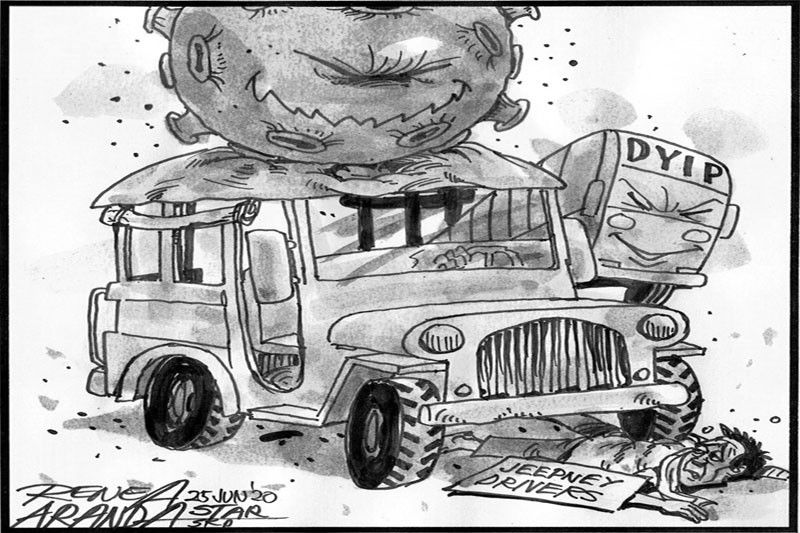EDITORIAL- Phasing out

Transport officials say operators and drivers of traditional jeepneys have been given three years to shift to the modernized or standardized versions. Under the public utility vehicle modernization program, traditional jeepney operators are encouraged to consolidate and rationalize their routes by the end of this month, and to invest in the modernized PUV units.
Jeepney operators and drivers had hoped for an extension of the deadline. The coronavirus disease 2019 pandemic, however, forced off the road starting in mid-March all forms of mass transportation including the traditional jeepneys.
With the easing of quarantine restrictions, certain forms of public transportation have gradually returned, starting with the light railway and commuter train services and point-to-point buses. Transport Network Vehicle Service units, regular taxis, some buses and even tricycles are back in operation, although with reduced capacity. But not the iconic traditional jeepney.
Instead the government has allowed the new or standardized versions of the jeepney to ply the streets of Metro Manila. Transport officials are standing firm on the PUV modernization schedule, with the traditional jeepneys soon relegated to minor and much less profitable routes in the National Capital Region although the vehicles are still allowed outside the NCR. In Baguio City and neighboring towns in Benguet, tests have shown that only the traditional jeepney can handle the steep, winding roads.
The modernization program aims to standardize the compensation for PUV drivers so that they can be paid like regular employees, rationalize the transport franchises that have led to congestion at all hours of the day along NCR thoroughfares, and streamline PUV deployment to ease perennial traffic jams. The quarantine won’t be around forever and the gridlocks will soon be back. The new jeepneys provide a more comfortable ride and many are kinder on the environment because they run on electric or solar power or a combination of alternative and regular fuels.
In the meantime, however, thousands of operators and drivers of the traditional jeepney clearly need aid during the quarantine. They cannot shift quickly to driving the new units, whose cheapest versions are priced at around P1.2 million. A number of drivers have taken to begging; some now live with their families in their jeepneys. The national government and some local government units have aid programs specifically for the sector during the COVID quarantine. Beyond pandemic aid, however, the drivers and operators will need assistance to soften the move toward modernization.
- Latest
- Trending

























